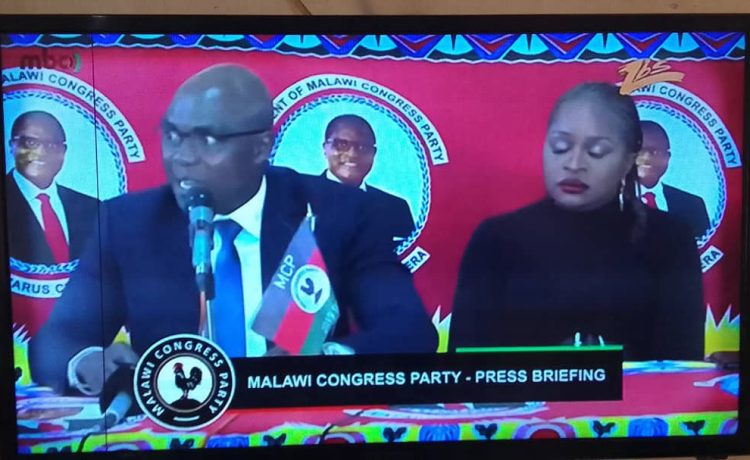Today’s headline story is a bombshell in Malawi’s political arena: Minister of Tourism Vera Kamtukule has dramatically defected from the UTM to join the Malawi Congress Party (MCP). In a grandiose ceremony earlier today at the party headquarters in the capital Lilongwe, Party Secretary General Eisenhower Mkaka, accompanied by Central Region Chairman Zebron Chilondola, warmly welcomed her into the MCP fold.
In stark contrast, UTM’s Party Secretary General Patricia Kaliati’s reaction has been dismissive and scathing. In a widely circulated interview with MIJ Radio, Kaliati vehemently denied Kamtukule’s membership in the UTM, insisting that her defection to the MCP is politically insignificant and irrelevant to the party.
This dismissive stance is startling, given that Vera Kamtukule has been a key minister under the UTM banner within the Tonse Alliance for a robust four years. She was recommended for a cabinet post by the late UTM President Saulos Chilima, and her sustained presence in the cabinet underscores her perceived value to the UTM, akin to other prominent figures like Michael Usi, the de jure President of UTM and the current Vice President of the country.
Late UTM President Saulos Chilima’s endorsement of Kamtukule highlights her importance and potential within the UTM. Her appointment and continued tenure as a minister signify her substantial role and influence. Her departure leaves a significant void that the UTM must now grapple with. Put differently, when Chilima left those self-styled true UTM diehards for the likes of the doubted Kamtukule and Usi, those diehards should assess their potential because frankly, Chilima saw them as chaff—Madeya.
Truth be told: Patricia Kaliati’s strategy, seemingly aimed at downplaying Kamtukule’s departure, only exacerbates the fractures within the UTM. The party appears to be splintering into factions, undermining efforts to rebuild and unify. It is essential to remember that UTM’s identity and appeal were closely tied to Saulos Chilima. Without his unifying charisma and with ongoing internal divisions, the party risks alienating its base and accelerating its decline.
The UTM, an urban-centric party, faces a perilous future if this disunity persists. As internal chaos continues, the party may lose its urban support to more established parties like the MCP and DPP, relegating it to the political periphery, much like the now inconsequential AFORD. The endgame could very well be the extinction of the UTM as a viable political entity.













